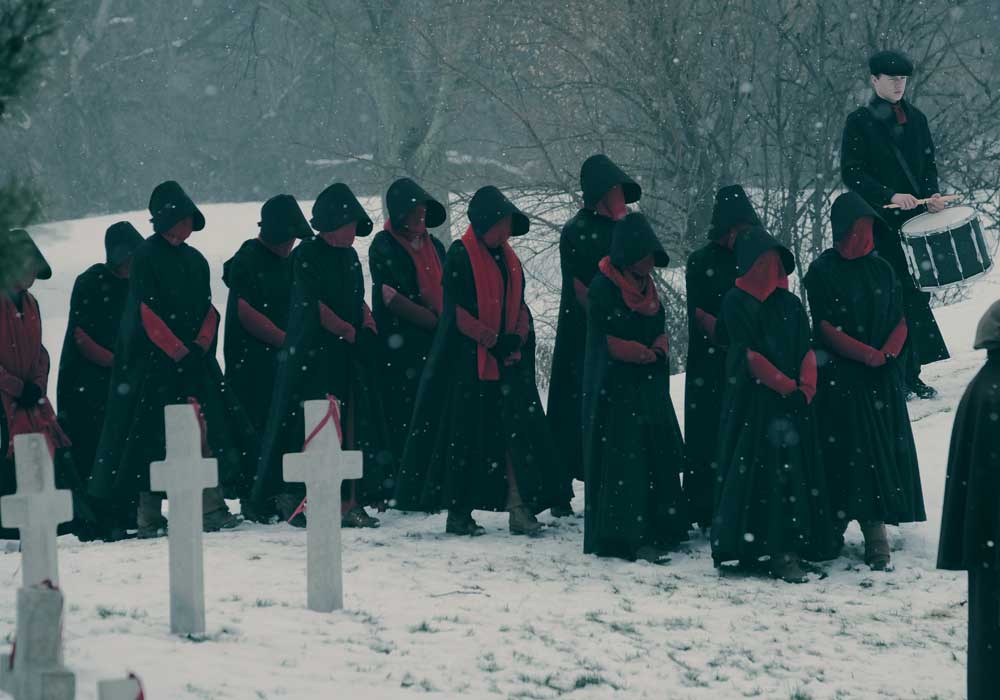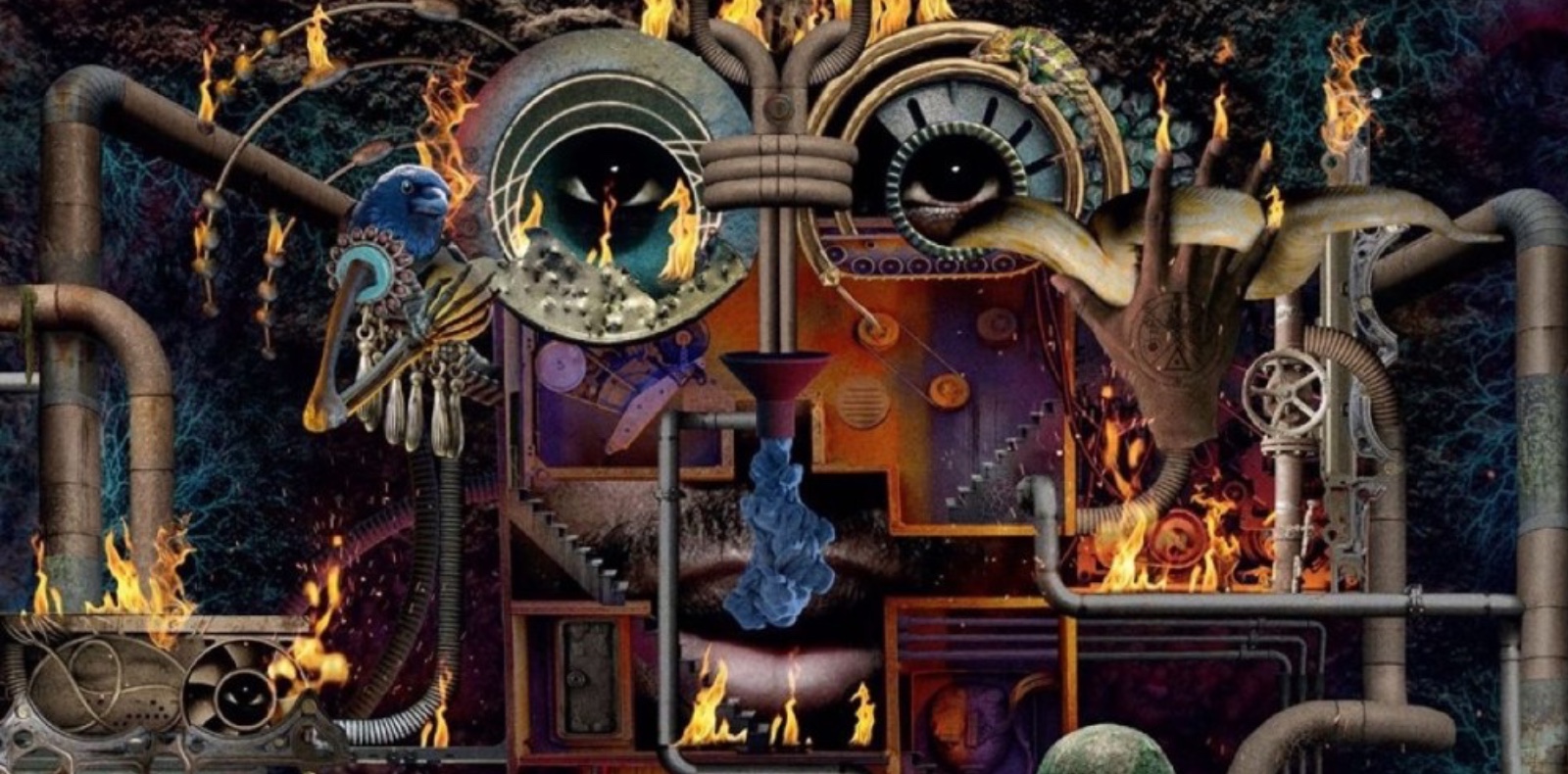
4

4
What we think of the season two of “The Handmaid‘s Tale”
May the series’ fans rest assured: although season two moves on from Margaret Atwood’s novel, it has lost nothing of its intensity. Elisabeth Moss continues to give an impressively nuanced performance, in a Gilead that has lost none of its oppressiveness.
By Olivier Joyard.

The principle of art is often to be a little ahead of the curve with respect to reality, to scratch the surface of things so as to reveal the groundswell and generally to enlighten an epoch about itself. Margaret Atwood’s 1985 novel The Handmaid’s Tale and its TV adaptation are a good example of this: in an imaginary future dystopia, human fertility has dramatically fallen due to an environmental apocalypse, and women capable of reproducing have become rare commodities in the Republic of Gilead (which is a republic only in name, since in fact it’s a dictatorship). Treated as slaves, raped by their “masters” and “mistresses” to make them pregnant, they’re forced to wear a red uniform and to take the name of their owners.
When the first season came out in 2017, the Weinstein affair hadn’t yet broken, #MeToo and #TimesUp didn’t exist, and the reality of violence towards women in every walk By Olivier Joyard of life hadn’t yet become a daily topic of conversation in the media, at dinner parties and in government. Yet it’s as though the character of Offred, the series’ heroine played by the dazzling Elisabeth Moss (West Wing, Mad Men, Top of The Lake), had already been through it all. After losing her husband and child to the dictatorship at the beginning of the series, she represents a certain female anger that has been contained for far too long. The scriptwriters chose to give her a voiceover, a classic, old-fashioned technique that makes perfect sense here since Offred’s words say everything she is not allowed to feel or express. Her inner freedom is intact, she can still think for herself despite everything. The series follows her obstacle-strewn trajectory, her constant battle to make it through to the next day with a hardness but also an energy that make her totally captivating. At the end of the first season, Offred glimpsed the possibility of escape. The second season, which begins this spring, faces a sizeable challenge given that it’s no longer directly inspired by the events in Atwood’s novel. Nonetheless the first episode should have reassured anxious fans, since the series’ DNA has remained intact.
The scriptwriters chose to give her a voiceover, a classic, old-fashioned technique that makes perfect sense here since Offred’s words say everything she is not allowed to feel or express. Her inner freedom is intact, she can still think for herself despite everything.

Once again we find the macabre atmosphere of oppression and the liberating power that the principal scriptwriter, Bruce Miller, had established with a certain clairvoyance. And once again we have the pleasure of watching Moss, an exceptional actress who is capable of bringing into play every state of her body, from beauty to ugliness, from pleasure to suffering. It’s never sufficiently acknowledged how much greater actors’ responsibility is in a series, compared to film, with respect to narrative continuity, which they must carry on their shoulders over a long period of time. But it’s a weight that Moss is more than capable of bearing. In just the first few seconds of the new season, she manages to convey all of Offred’s extreme distress and the danger she faces as she attempts to escape. Thanks to her, The Handmaid’s Tale becomes a case study in survival seen through the spectre of the feminine. It’s a contemporary narrative that is not just fascinating, but eminently necessary.













